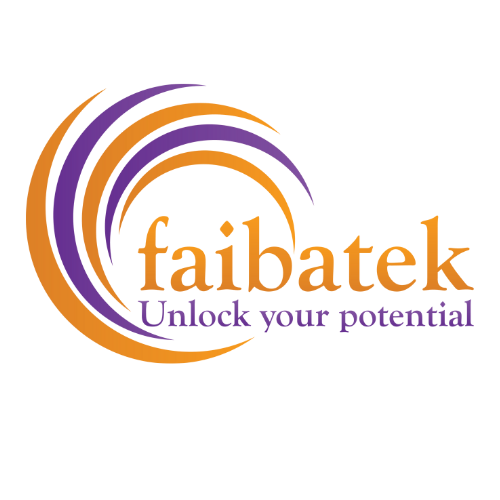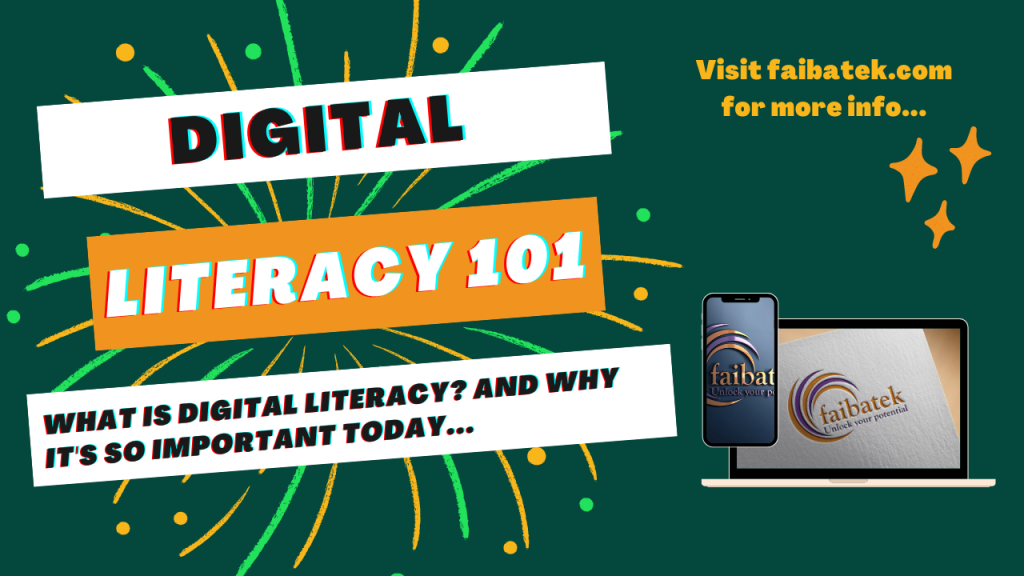Digital literacy is the ability to use technology, such as computers, smartphones, and the internet, to access, understand, and use information effectively. It involves having the skills and knowledge to navigate the digital world, communicate and collaborate with others, and solve problems using technology.
In Africa, despite the growing use of technology, digital literacy rates accross the continent are still low. This presents a significant challenge as technology is increasingly playing a central role in all aspects of life, from education to job opportunities and economic growth. Improving digital literacy rates in Africa is crucial for unlocking the full potential of the continent and enabling its people to participate fully in the global digital economy and that’s our mission at FAIBATEK
Why is Digital Literacy Important?
In today’s world, technology is everywhere and plays a big role in our lives. From communicating with friends and family to finding information and shopping online, technology has made our lives easier and more convenient. Digital literacy is essential because it helps us to make the most of these technological advancements.
Having digital literacy skills can also open up new opportunities for education and employment. Many jobs today require the use of technology and having digital literacy skills can give you an advantage in the job market. Additionally, digital literacy skills can help you to manage your finances, stay informed, and be a responsible digital citizen.
Essential Digital Literacy Skills
Becoming digitally literate requires learning a variety of skills and knowledge. Here are some of the essential skills and knowledge you need to become digitally literate:
- Basic Computer Skills: This includes knowing how to use a computer, such as using a mouse, keyboard, and operating system.
- Internet and Search Engine Usage: Knowing how to access the internet and use a search engine to find information is essential.
- Email and Social Media: Understanding how to use email and social media to communicate and collaborate with others is important.
- Online Safety and Privacy: Being aware of online safety and privacy risks and knowing how to protect yourself online is crucial.
- Digital Citizenship: This involves being responsible and ethical when using technology, and understanding the impact technology has on society.
- Problem Solving and Critical Thinking: Being able to use technology to solve problems and think critically is a valuable skill.
Getting Started with Digital Literacy
If you want to become digitally literate, the first step is to start learning and using technology. Here are some ways you can get started:
- Start using technology: Get comfortable using a computer, smartphone, and the internet. Try to use technology for different tasks, such as finding information, communicating with others, and solving problems.
- Learn from others: Ask friends, family, or teachers for help or guidance in learning about technology. You can also find online resources, such as tutorials and forums, to learn more about digital literacy skills. Click here to learn more…
- Practice, Practice, Practice: The more you use technology, the more comfortable and confident you will become. Practice using different technologies and skills to improve your digital literacy.
Conclusion
Digital literacy is an essential skill in today’s world and is important for a variety of reasons. From finding information and staying connected with others to managing your finances and being a responsible digital citizen, digital literacy skills can help you make the most of the technological advancements available in the world today. To become digitally literate, start by learning and using technology, seeking help from others, and practicing your skills.
This Article is the first of our DIGITAL LITERACY series. Stay tuned for the next article from our experienced writers… And visit the Faibatek Blog for more resourceful and interesting updates.

